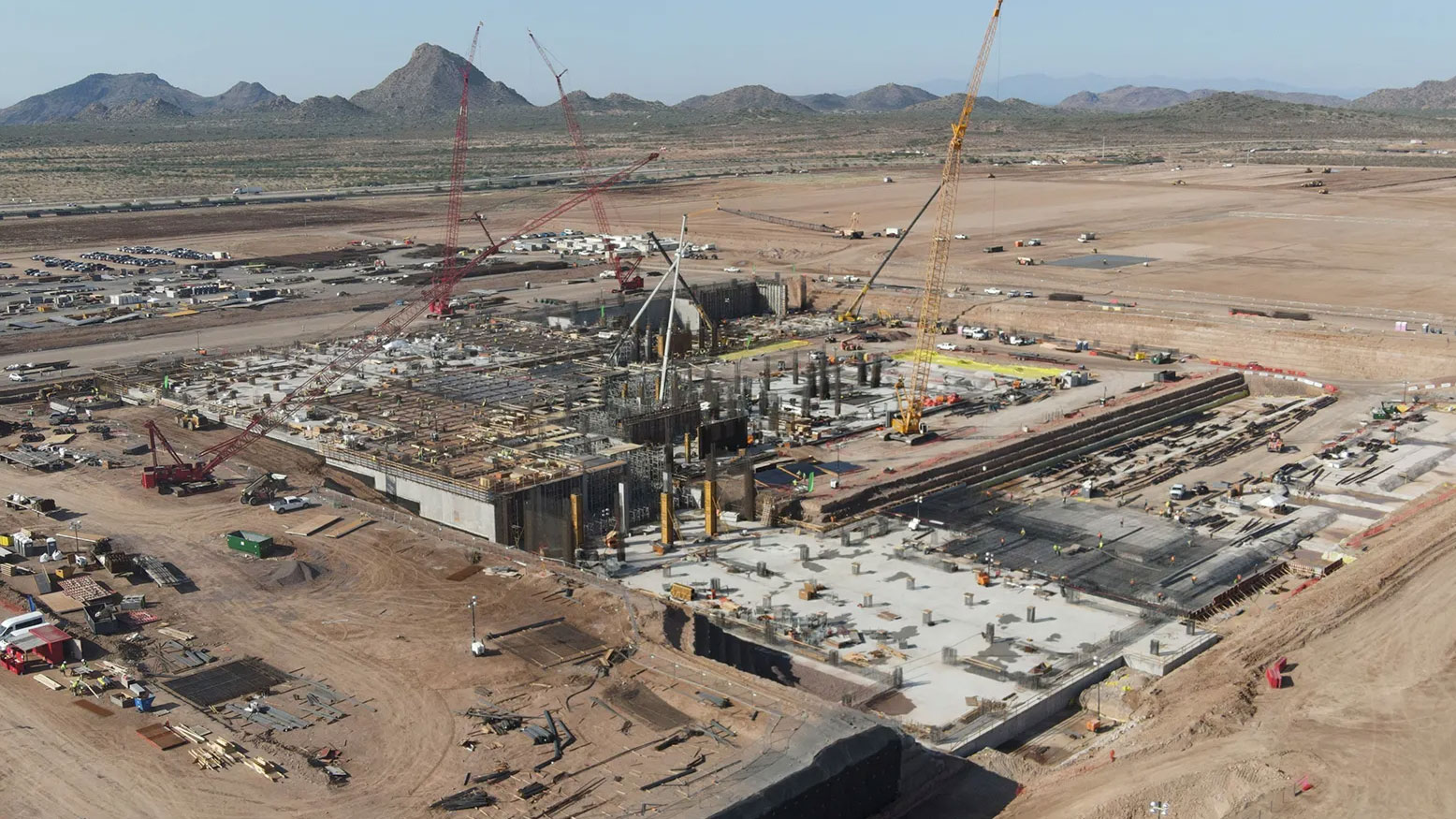TSMC Warns Clients of up to 9% Price Hike in 2023
It's better than the 10% to 20% price hike in 2022.
Taiwan Semiconductor Manufacturing Co. (TSMC) told its clients to expect a price increase of between 5% and 9% in 2023, according to Taiwanese industry sources speaking to DigiTimes. The alleged increase will apply to both TSMC's advanced and mature processes.
TSMC levied a slight price increase in 2021, but hiked prices between 10% and 20% in 2022. TSMC is a major chip supplier for Apple, AMD, Intel, and Nvidia.
It's easy to conclude, based on this pricing trend, that we're past the peak of the semiconductor supply/demand imbalance — and industry analysts seem to agree, suggesting the chip shortage may ease up by the end of 2022.
TSMC has a more bullish outlook, according to DigiTimes, estimating an increase in annual revenue of 30%, and is forecasting a long term compound annual growth rate (CAGR) of between 15% and 20%. This might not be too far off, considering TSMC reported record-high revenue increases in the first quarter of 2022, up 35.5% year-over-year.
Even casual consumers are probably aware of how the pandemic has affected the semiconductor industry, thanks to increased demand for consumer and work-from-home devices, but now these market segments are slowing down. The twin effects of the Russia-Ukraine war and the fuel pricing crunch have also dented consumer confidence and spending on non-essential electronics.
But TSMC's clients have substantial markets beyond the consumer sphere. According to DigiTimes, strong demand and the need for long-term structural upgrades in high-performance computing (HPC) sector and 5G will drive growth. There's also increasing demand for semiconductors in the automobile industry, especially as more people switch to electric vehicles.
DigiTimes also reports that TSMC may have politics on its side, if the U.S. imposes further sanctions on China-based semiconductor firms such as SMIC and Hua Hong Semiconductor. Even rumors of sanctions could lead to companies moving to out-of-China manufacturers such as TSMC to avoid a potential supply chain disruption.
Get Tom's Hardware's best news and in-depth reviews, straight to your inbox.
According to DigiTimes, TSMC's upcoming price increase is possibly due to financial strain from overseas fab construction delays and commissioning expenditure. DigiTimes notes that US building, staffing, resource pricing, and utilities are more expensive than were initially forecast, thanks in part to skyrocketing global inflation.
TSMC's alleged 5% to 9% price hike will begin in January 2023.

Mark Tyson is a news editor at Tom's Hardware. He enjoys covering the full breadth of PC tech; from business and semiconductor design to products approaching the edge of reason.
-
tennis2 The inflation never stops.Reply
My 3% "cost of living" raise gets less sufficient every year. -
gg83 Reply
I only get 2% cost of living raise.tennis2 said:The inflation never stops.
My 3% "cost of living" raise gets less sufficient every year. -
magbarn Well they have a virtual lock on large scale production of 5nm and smaller so they can basically charge whatever they want at this point....Reply -
vertuallinsanity The weekly supply status changes are getting a little long in the tooth. Too much propaganda at a point in time when we're already past it.Reply
Sensational! Inducing a feeling of insecurity!
No..
The reality of the situation: Flow has gradually returned to normal while a bubble of insane tech companies gasp for the last glimpses of a capital goldmine on a version 1.oh internet.
Nothing to sea hear.. -
2Be_or_Not2Be Yeah, a lot of people don't even get a COLA raise. Yet, the rich get richer, and the poor get poorer. Corporations have better rights than their employees. Such is life...Reply
Me - I just want Intel to bring Optane back. ;) -
thisisaname Replymagbarn said:Well they have a virtual lock on large scale production of 5nm and smaller so they can basically charge whatever they want at this point....
Aye when your the only game it town you get the charge what you like, wonder how badly that is going to go when (or that if) intel gets their fabs going. -
2Be_or_Not2Be Replythisisaname said:Aye when your the only game it town you get the charge what you like, wonder how badly that is going to go when (or that if) intel gets their fabs going.
Yeah, Intel should have brought new high-end process fabs on faster. GloFo should have never quit the high-end either. TSMC is now reaping more of the profit that those two could have had. -
jkflipflop98 Yes, keep raising your prices and ticking off your customers. Please keep it up. I'm begging you.Reply -
spongiemaster Reply
Not really going make much of a difference. With only 2 options, they are still going to struggle to meet global demand, so there isn't going to be any price war.thisisaname said:Aye when your the only game it town you get the charge what you like, wonder how badly that is going to go when (or that if) intel gets their fabs going.
